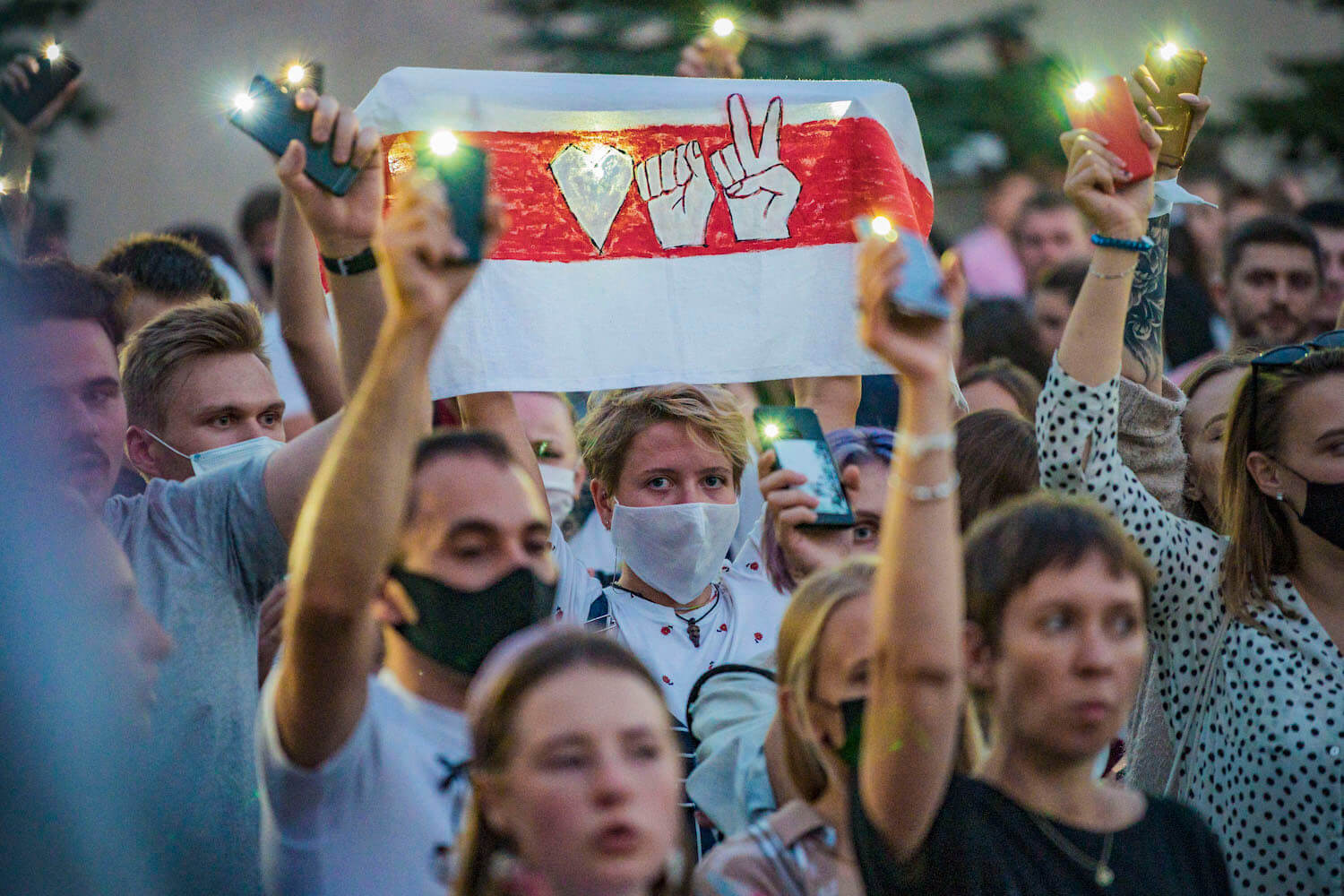Estonia, Latvia, and Lithuania imposed sanctions on 30 Belarusian officials on Monday, with embattled President Alexander Lukashenko topping the blacklist. Minsk criticized the countries’ actions, saying it was a hasty step and vowing retaliation, warning that it could block the transit of European cargo from crossing Belarus.
The Baltic states have taken the lead in urging the international community to take more firm action against Belarusian authorities, who have been accused of rigging the August 9 vote that extended Lukashenko’s 26-year rule. The European Union (EU) has said that it would not recognize the results of the disputed Belarus election, arguing that the incumbent president’s victory was “neither free nor fair, and did not meet international standards”.
“We said that we need peaceful dialogue and agreement between the regime and society, but we see that the regime is not ready for that. We see that we need to move forward and to show an example to other countries,” Lithuanian President Gitanas Nauseda said. Lithuania’s Foreign Minister, Linas Linkevicius, told the AFP news agency that the restrictive measures signaled the country’s resolve to take “concrete action”, rather than only issuing strong statements. The EU is preparing its own list of individuals to sanction for their involvement in election fraud and the violent clampdown on demonstrators.
Lithuania has been providing refuge to opposition leader Svetlana Tikhanovskaya, who fled Belarus after the election due to security concerns. She is set to address the United Nations Security Council (UNSC) on Friday through Estonia’s invitation, and also speak at the Parliamentary Assembly of the Council of Europe next week.
Speaking with POLITICO via videoconference on Monday, Tikhanovskaya sought to bring attention to the mass detaining and disappearances of her supporters, criticizing the government’s brutal crackdown on the demonstrations that have engulfed the country. “What I want to tell is that a lot of people in Belarus now are political prisoners… They just are in jail without any court, and they are in there only for their, I don't know, for their wish to talk about what's going on in Belarus, about their desire to live in a free country,” she said. However, despite Lukashenko’s efforts to curb dissent, Tikhanovskaya said she was confident that the protests, along with labour strikes, would continue, given that they were all prepared for a long struggle towards a new path for the country.
She also stressed that the release of political prisoners, including her husband Sergei Tikhanovsky, and the establishment of a new central election commission were the most immediate priorities to ensure a new free and fair election, and said that her “mission will be over” once such a vote is organized.
Meanwhile, Lukashenko discussed plans for a referendum on constitutional reforms on Monday, in an apparent bid to appease protesters. Acknowledging Belarus’ “somewhat authoritarian system”, Lukashenko’s proposals focused on instituting more independent courts, although he claimed that they were not needed. State news agency Belta quoted Lukashenko as saying that experts were looking into revisions of the law, and said he would welcome change in order to “move our society forward”. He insisted, however, that the changes required were minimal, and that those who demanded an overhaul of the entire system were in a minority.
Baltic Nations Impose Sanctions on Lukashenko, Belarus Vows Retaliation
Meanwhile, Lukashenko has proposed a vote on constitutional reforms to appease protesters.
September 1, 2020

SOURCE: FOREIGN POLICY
